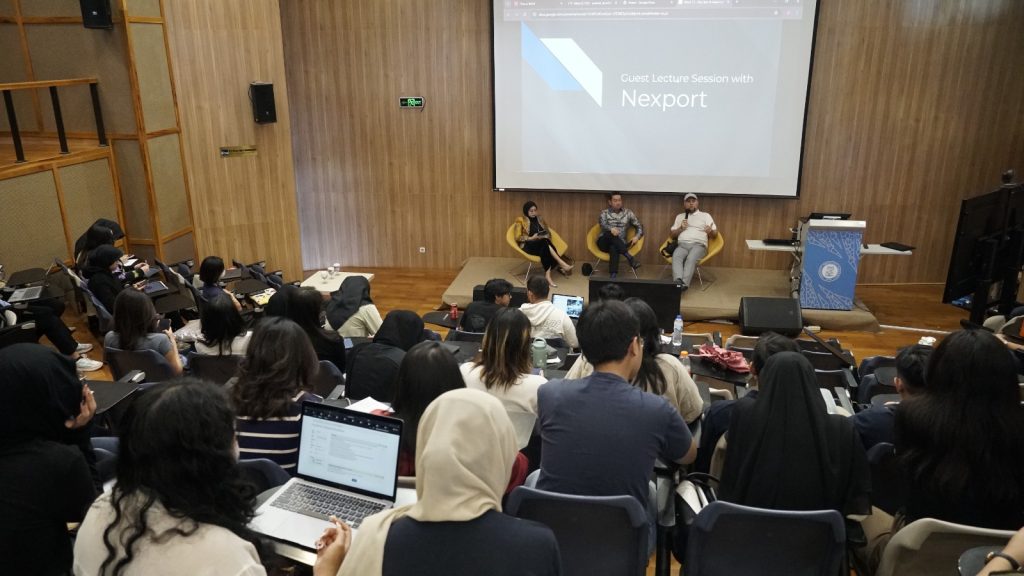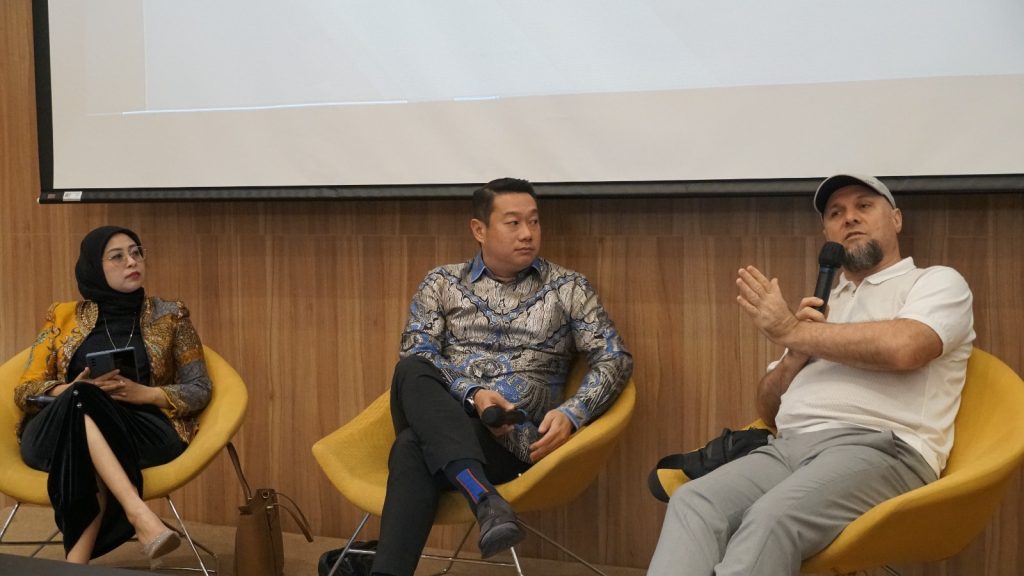Technology has greatly facilitated access to information and communication for business people, particularly those with an export-import orientation.
With the extensive availability of technology that simplifies access to information and industrial activities, we should leverage these advancements to become successful entrepreneurs. Numerous local products can be marketed and sold internationally.
Three guest lecturers, Ruslan Israpil, Virgo Riand, and Devi Erna Rachmawati, discussed the opportunities in the export market during the International Trade and Finance course at SBM ITB, on Friday (31/5).
According to these experts, successful entrepreneurs require various skills and broad thinking. This is crucial because the business landscape is dynamic and ever-changing. For instance, during the COVID-19 pandemic, many international businesses faced bankruptcy due to logistics issues. Today’s business environment is different from what it was a few years ago and will continue to evolve.
The lecturers observed that today’s young generation is often hesitant to start a business despite the vast opportunities available.
Devi Rachmawati shared her experience of spending 18 years working in the ministry before opening a factory in Uzbekistan. She does not regret leaving her job and even pursued a doctorate to study business and attract investors. She strongly encourages young people to explore entrepreneurship, especially in the international market.
Devi and Virgo emphasized that new entrepreneurs should not fear starting a business due to concerns about initial capital. Many of their business partners began their import-export ventures without any capital, demonstrating that starting easily is possible.
For example, an entrepreneur from Situbondo sells skincare products on the TikTok platform, earning IDR 50 billion monthly. The skincare products are not his own design but are quality local products. The primary capital is the idea and the value of the product.
For beginners, selling finished products rather than raw materials is recommended. Selling raw commodities is much more complex and difficult. Many businesses fail to grow due to a lack of opportunities and increasing competition. Selling finished products is more stable, allowing for better marketing and brand creation.
Once a product is marketed in brand form, the first step is to strengthen the brand image. One effective method is through social media and engaging with potential customers. By building a strong brand image, businesses can maintain an edge over competitors.
The next step is to develop the brand by adding product variations or modifications. Continuous development will attract customers and boost their confidence as the brand keeps up with trends and customer preferences.
To enter the market, it is essential to determine a specific target market and a suitable marketing strategy to effectively reach that audience. Ruslan suggests using social media or online platforms such as Amazon for international marketing, which is both effective and cost-efficient. Additionally, obtaining the necessary product licenses and certifications is crucial for export and import activities.
All three guest speakers agreed that it is beneficial for entrepreneurs to start small and not be afraid to take the first step.






